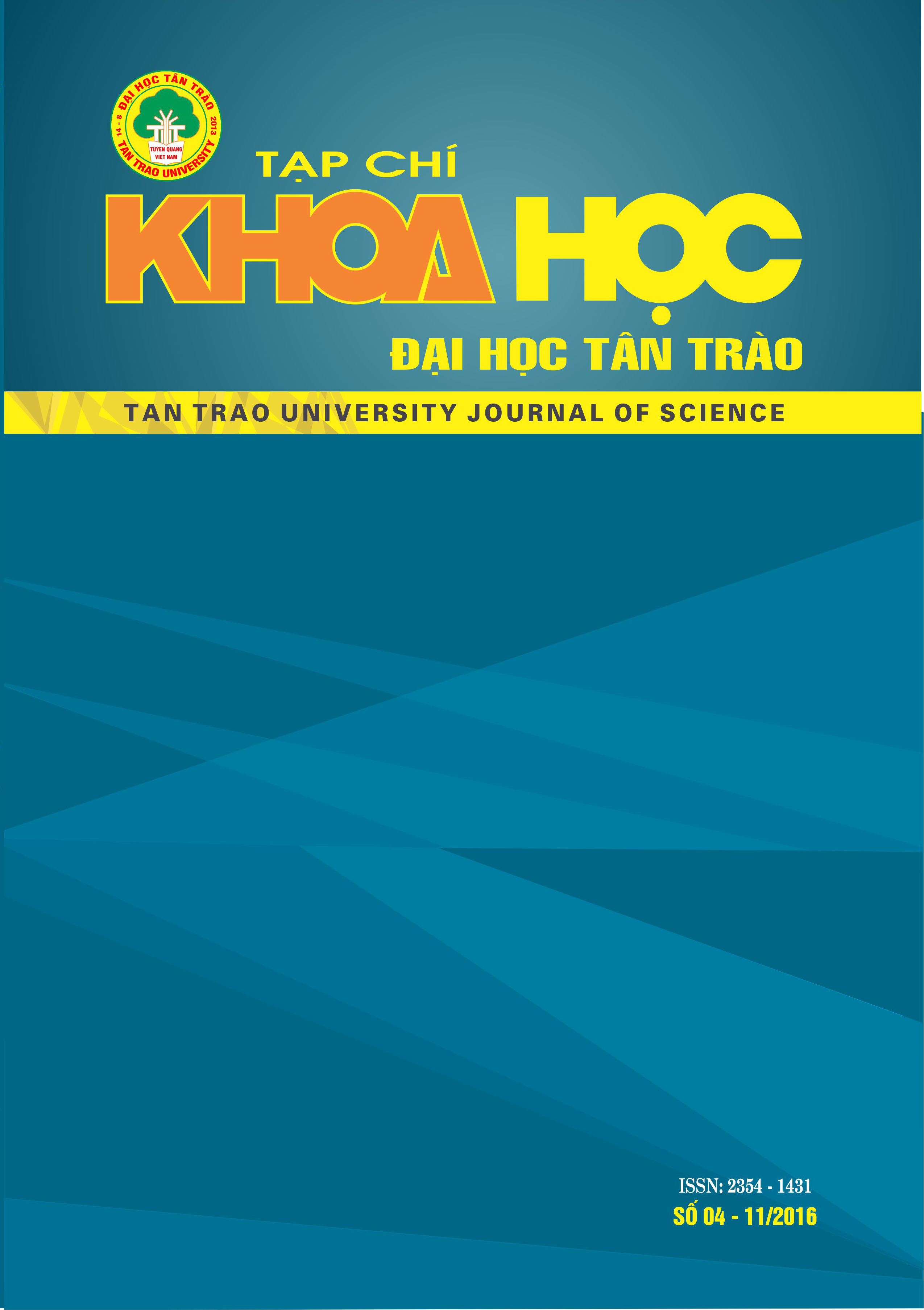Thoughts of behavior of Nguyen Trai through the work “Quoc am thi tap”
DOI:
https://doi.org/10.51453/2354-1431/2016/141Keywords:
behavior; society; people; quoc am thi tapAbstract
As an immutable phenomenon, behavior has been considered as a standard in educating people. Understanding primary origin of social characteristics of Vietnamese culture, Nguyen Trai had profoundly and truthfully expressed people’s behavior towards society where usually exists unexpected, right and wrong stories, and where he wanted to hire also where to satisfy his aspiration and inspiration in helping people and the country. Today, the work “Quoc am thi tap” is still an invaluable lesson of behavior.
Downloads
References
1. Phạm Luận (2012), Nguyễn Trãi - Quốc âm thi tập, Nxb Giáo dục, Hà Nội;
2. Trần Đình Hượu (1995), Nho giáo và văn học Việt Nam trung cận đại, Nxb Văn hóa thông tin, Hà Nội;
3. Bùi Văn Nguyên (2003), Thơ Quốc âm Nguyễn Trãi, Nxb Giáo dục, Hà Nội;
4. Lê Văn Quán (2007), Văn hóa ứng xử truyền thống của người Việt, Nxb Văn hóa thông tin, Hà Nội;
5. Phạm Thị Phương Thái (2015), Cống hiến của Nguyễn Trãi đối với nền thơ viết bằng tiếng Việt, Nxb Giáo dục, Hà Nội;
6. Trần Nho Thìn (2007), Văn học trung đại Việt Nam dưới góc nhìn văn hóa, Nxb Giáo dục, Hà Nội.
Downloads
Published
How to Cite
Issue
Section
License

This work is licensed under a Creative Commons Attribution-ShareAlike 4.0 International License.
All articles published in SJTTU are licensed under a Creative Commons Attribution-ShareAlike 4.0 International (CC BY-SA) license. This means anyone is free to copy, transform, or redistribute articles for any lawful purpose in any medium, provided they give appropriate attribution to the original author(s) and SJTTU, link to the license, indicate if changes were made, and redistribute any derivative work under the same license.
Copyright on articles is retained by the respective author(s), without restrictions. A non-exclusive license is granted to SJTTU to publish the article and identify itself as its original publisher, along with the commercial right to include the article in a hardcopy issue for sale to libraries and individuals.
Although the conditions of the CC BY-SA license don't apply to authors (as the copyright holder of your article, you have no restrictions on your rights), by submitting to SJTTU, authors recognize the rights of readers, and must grant any third party the right to use their article to the extent provided by the license.


